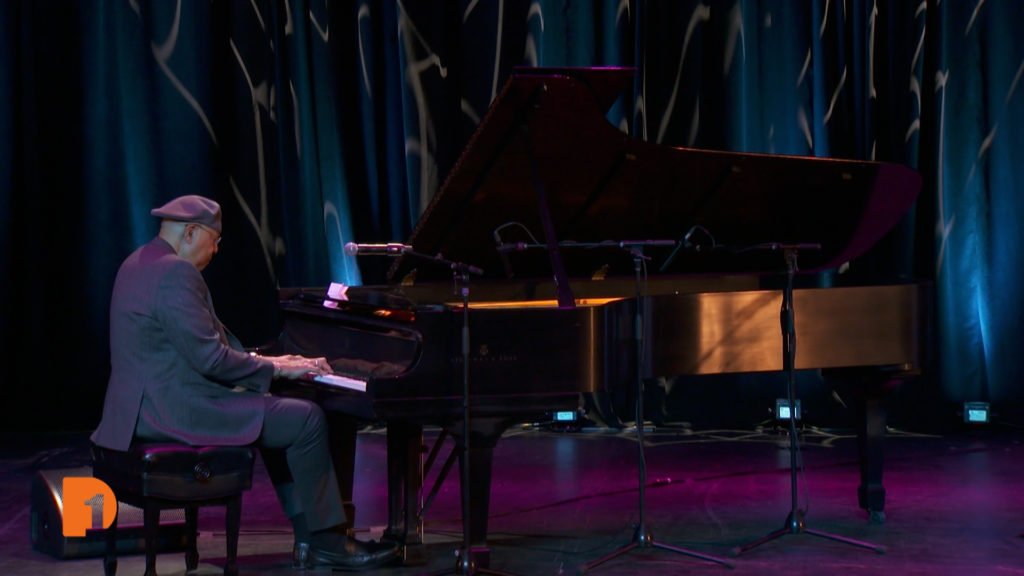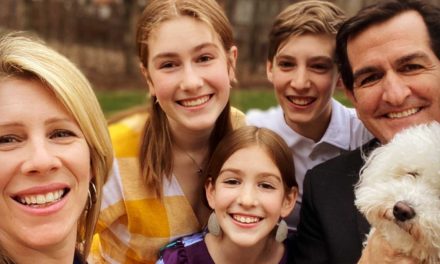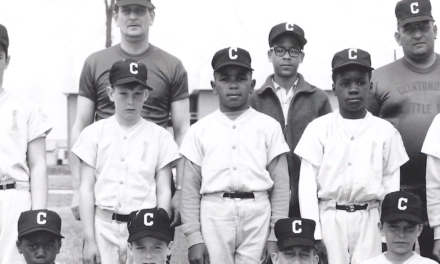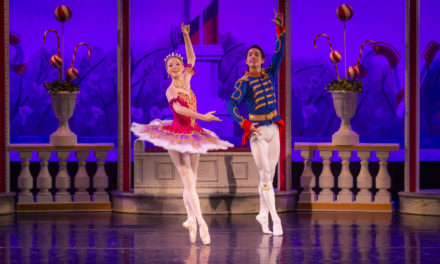Renowned Cuban pianist, composer and bandleader Jesús “Chucho” Valdés, 80, has amassed a laundry list of awards and accolades in his decades as a musician, including seven Grammy and four Latin Grammy Awards, a Lifetime Achievement Award from the Latin Academy of Recording Arts & Science and he’s been inducted in the Latin Songwriters Hall of Fame. This year, he adds another accolade to the list as the Detroit Jazz Festival‘s 2022 artist-in-residence.
RELATED: Detroit Jazz Bassist Marion Hayden Discusses Detroit’s Renowned Jazz Culture
RELATED: Trumpeter, Composer Kris Johnson Directs DSO’s Paradise Jazz Series Big Band Debut Performance
Chucho Valdés has performed solo and as a bandleader, blending elements of Afro-Cuban music tradition with jazz, classical music, rock and more into a deeply personal style. Ahead of the 2022 Labor Day weekend festival, WRCJ “The Swing Set” host Linda Yohn sits down with Valdés to talk about performing at the upcoming festival and his role as the 2022 artist-in-residence.

Cuban pianist, composer and bandleader Chucho Valdés plays the piano. | Photo by One Detroit
Full Transcript:
Linda Yohn, Host, WRJC 90.9 FM: Jesús Valdés Rodríguez, best known as Chucho Valdés, the Artist-In-Residence for the 2022 Detroit Jazz Festival. Chucho, welcome back to Detroit and please give us your thoughts on the Detroit Havana connection.
Chucho Valdes, Detroit Jazz Festival 2022 Artist-In-Residence: First of all, I’m very happy to be again here in this festival. In my opinion, is one of the most important festivals in the world of jazz. I have been lucky enough to play before. But this time, as an artist-in-residence, is really a huge honor for me. I will be able to present a lot of projects that I’ve been working on.
First of all, the one called The Creation. It’s a suite in three parts. And it describes the influences of the African music in the Caribbean, in the United States, African American [indecipherable]. The second one is duet with Dianne Reeves, one of my favorite singers. Joe Lovano, one of my greatest favorites. And the third one is going to be with a super quartet. It is my understanding that is an excellent relation between the festival between Havana and Detroit.
Linda Yohn: Gracías. Tell me, and DPTV what it means to be communicating, through music, internationally.
Chucho Valdes: Music is the universal language. And all musicians, that in this moment we are talking about jazz, we are a big family. The festival is the place to meet. It is like our home at this moment. And we exchange knowledge, and we play together. It is a wonderful thing for me.
Linda Yohn: I read the story. You were three, and you were playing piano by ear. And your beautiful father, Bebo Valdés, heard you. Can you tell the story again about being discovered by your father?
Chucho Valdes: [Laughs] Who really play the piano at home was Bebo. And being only three years old, I was always looking at him. And I wanted just to be somewhere like him when I would just become older. When he used to get out of the house, he’d [I’d] just jump into the piano and start searching for notes, melodies. And he [I] started to play by ear, his first songs. He didn’t know anything about it.
One morning he left the house. He forgot he left behind some writings, so he had to come back to pick them up. So he said, to tell the story, that he hears somebody just playing so good music at the piano. And when he opens the door, he saw him [Chucho] playing the piano, but his mom knew about it, you know. Then he complained, “Why didn’t you tell me anything about it? This guy has to be a musician!”
Linda Yohn: Oh. Beautiful. Beautiful. So, tell us about the relationship of the piano in Cuban music to other instruments, especially the drum.
Chucho Valdes: The piano is a harmonic instrument, but at the same time, very with rhythm. The drum is an instrument of rhythm. It is not harmonic. [indecipherable] that don’t give the melody or harmony, as the other one does. When they both play together, the piano just feels rested, because the drum is helping the piano. Even though the piano can do everything without the drummer.
Linda Yohn: But it helps.
Chucho Valdes: It always helps.
Linda Yohn: [Laughs] Mhm. You had a great group with drummers and other instruments, including Paquito D’Rivera with Irakere. Tell us a little bit about the difference that Irakere made for the world.
Chucho Valdes: Irakere change everything. All the structures. I think it was the brass section most important. The one that played some more influences in all the history of Cuba. Paquito D’Rivera. Arturo Sandoval. Jorge Varona. Y Carlos Averhoff.That’s a section more incredible that have to just go through the Cuban music. And the most respected musician that, even today.
We added a lot of elements of the jazz to the Afro-Cuban music. And we also introduce so many African percussion instruments that were not used before in the Cuban dance music.
Linda Yohn: Yeah. La Batá [drums]!
Chucho Valdes: La Batá. You know it [laughs].
Linda Yohn: Yeah, beautiful, yeah, I do. I do. “Jazz Batá 2;” beautiful recording, and “Mirror Mirror.” You have won Grammy Awards for both of these, and I hope people will re-listen to them. What should we listen for in “Jazz Batá 2” and “Mirror Mirror” with Chick Corea and Eliane Elias?
Chucho Valdes: First of all in Jazz Batá, the language is totally different. The vocabulary is totally different to what he has made before. We are speaking in Yoruba language. And the piano I used to, just, apart from the harmony, as a percussion instrument. I was playing with the drums. And it’s totally different language.
“Mirror Mirror” is one of the most beautiful experiences in all my life. Because I adore Eliane Elias. Brazilian music is incredible, but she also manages to just to deal with Afro-Cuban music. All the languages. And Chick Corea, who, by the way, is one of my heroes. He also manages everything. I felt very comfortable in the language among us.
Linda Yohn: La Creación, you explained it. Give us some of your other dreams and jazz hopes for the world.
Chucho Valdes: I’m working on a vocabulary and language: Cuban, Afro-Cuban, jazz. But with another way of expression. And with a harmonic feeling totally different to the one that we have done so far. I think it could be something different to everything that we have done before.
Linda Yohn: Good. ¡Bueno!
Chucho Valdes: Buenísimo.
Linda Yohn: ¡Muy bueno! Oh, Chucho. Gracías. Thank you.
Stay Connected:
Subscribe to One Detroit’s YouTube Channel & Don’t miss One Detroit Mondays and Thursdays at 7:30 p.m. on Detroit Public TV, WTVS-Channel 56.
Catch the daily conversations on our website, Facebook, Twitter @DPTVOneDetroit, and Instagram @One.Detroit
View Past Episodes >
Watch One Detroit every Monday and Thursday at 7:30 p.m. ET on Detroit Public TV on Detroit Public TV, WTVS-Channel 56.




